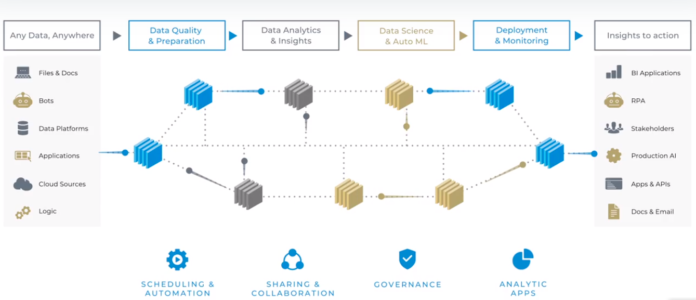Close to three in every five (73%) organisations in Singapore expect analytics spend will outpace other software investments in the next 12-18 months, according to an IDC research commissioned by Alteryx.
IDC surveyed 1,501 respondents across the regions of North America; Europe, Middle East, and Africa; and Asia-Pacific.
Findings from Singapore show that as organisations increase their spending on analytics, the overwhelming majority say that less than half of business decisions are based on analytics.
Also, even fewer are maximising advanced analytics, as less than 30% of decisions are informed by artificial intelligence and machine learning for most organisations.
In Singapore, 89% of organisations are not fully using the analytics skills of their employees. This is in part due to only one out of five organisations across the globe reporting commensurate investment in upskilling for analytics and data literacy.
Globally, IDC found that nine out of 10 respondents say that less than half of their knowledge workers are active users of analytics software other than spreadsheets.
Also, 63% of organisations are not using the full breadth of data types available, and 82% of organisations indicate data access policies are only moderately effective or worse.
Further, enterprise-wide analytics solutions have been deployed in less than half of the departments that need them.
Many business processes in today’s digital economy are still manually running on paper and outdated spreadsheets, creating a widening analytics gap. When respondents invested in a low-code/no-code analytics automation platform and followed specific strategies, IDC found organisations improved their financial, customer, and operational metrics.
These strategies included deploying easy-to-use cloud-based or hybrid AI-infused analytics technology to support cross-functional use cases, and breaking down data and analytics silos by emphasizing enterprise-wide analytics.
Also included are developing a data culture that aligns technology spend with upskilling on data literacy, and ensuring alignment on analytics initiatives between IT and line of business to eliminate shadow IT.
Dan Vesset, group VP of Analytics and Information Management at IDC, said organisations that provide analytics tools that are easy to use and easy to access — while upskilling their talent — achieve more ROI from their respective analytics investment than organisations who do not.
“As their operating business environment increase in complexity, organisations need powerful and unified, end-to-end analytics automation solutions that enable business leaders to make critical data-led decisions anytime, anywhere,” Gari Johnson, Alteryx SVP of Asia Pacific and Japan.
















